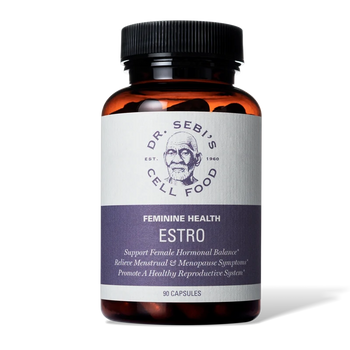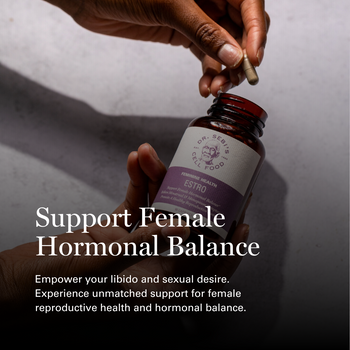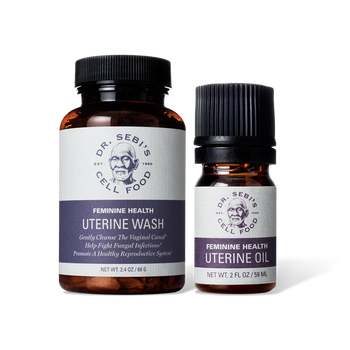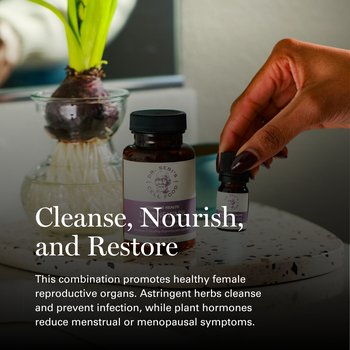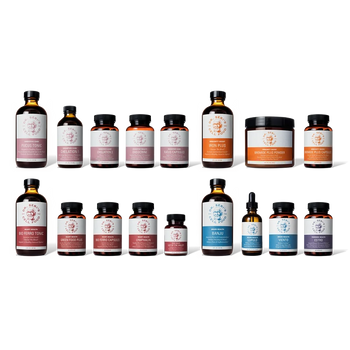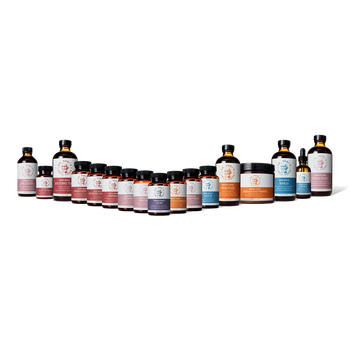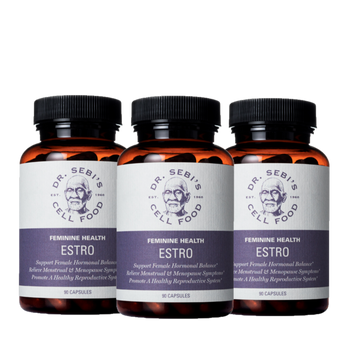Let's talk about our favorite women’s well-being topic: vaginal health! Okay, so maybe it's not our favorite topic, but it's definitely an important one.
We often go to great lengths to take care of our hair, skin, and nails, but sometimes we forget about our down-there region. But your vagina deserves just as much TLC as the rest of your body.
From preventing yeast infections, sexually transmitted infections and urinary tract infections to keeping things fresh and clean, there are plenty of reasons why vaginal health should be a top priority. Let's dive in and learn how to keep your vagina healthy.
The Importance of a Healthy Vagina
Good news: The vagina is a self-cleaning organ that’s capable of maintaining its own pH balance and protecting against harmful bacteria and other microorganisms through the production of cervical mucus.
The vagina contains a diverse array of bacteria known as the vaginal microbiome. This microbiome is made up of various strains of bacteria that work together to maintain balance in the vagina. Additionally, the vagina has a naturally acidic pH, which helps create an environment that’s hostile to certain types of bacteria and yeast.
Despite the vagina's natural ability to clean itself, it's still important to practice good vaginal hygiene to maintain the health and well-being of the female reproductive system. Here are three reasons to take care of your down-there region:
-
Preventing infections: The vagina is home to a delicate balance of bacteria that can be disrupted by various factors such as menstrual blood, vaginal sex, douching, or certain feminine hygiene products. That can increase the risk of bacterial vaginosis, yeast infections, or urinary tract infections.
-
Reducing strong odors: It's normal for the vagina to have a slight odor, but strong or unpleasant odors — or excessive, odd-smelling vaginal discharge — may be a sign of an infection or other issue. Good hygiene can help reduce odors.
-
Improving overall health: Maintaining good vaginal hygiene can have positive effects on overall health: avoiding bacterial vaginosis or UTI's.

7 Tips for Maintaining Optimal Vaginal Health
By practicing good hygiene, staying hydrated, balancing your hormones, and avoiding harsh chemicals, you can help support the health of your reproductive system and reduce the risk of infections or other issues. Follow these tips:
-
Practice good hygiene: Keeping your genital area clean and dry is essential. This includes washing with mild soap and water and avoiding the use of harsh chemicals or perfumes.
-
Wear breathable clothing: Tight or non-breathable clothing can trap moisture and heat, which can create an environment that’s conducive to the growth of bacteria or yeast. Opt for breathable fabrics — like cotton underwear — and avoid wearing tight clothing for long periods of time.
-
Stay hydrated: Drinking plenty of water can help keep your body hydrated and support the natural cleansing processes of your vaginal canal.
-
Avoid douching: Douching with chemicals isn’t necessary for maintaining vaginal health and can actually disrupt the natural balance of bacteria in the vagina. Douching with herbs like the ones found in our Uterine Wash & Oil help promote a balanced pH.
-
Practice safe sex: Using condoms or other forms of protection during sexual activity — particularly vaginal sex — can help reduce the risk of sexually transmitted infections. It’s also beneficial to use water-based lubricants and sex toys that have been cleaned regularly.
-
Avoid using scented products: Scented products such as pads, tampons, or sprays can irritate the vagina and disrupt the natural balance of bacteria. Opt for unscented products instead.
-
Use natural remedies: Natural teas, tea tree oil, and coconut oil can help support vaginal health. But consult with your OB/GYN or other healthcare provider before trying anything new.
Frequently Asked Questions
1. What’s the difference between vagina and vulva?
The terms "vagina" and "vulva" are often used interchangeably, but they actually refer to different parts of the female reproductive system. The vagina is the internal canal that connects the cervix (opening of the uterus) to the outside of the body.
The vulva, on the other hand, refers to external genitalia. It includes the mons pubis (fatty area over the pubic bone), labia majora and minora (the outer and inner lips), clitoris, vaginal opening, and urethral opening.
2. Is my vagina normal?
It's completely normal to wonder if parts of your body are “normal.” And when it comes to vaginal anatomy, there’s a wide range of normal, and everyone's genitals are unique. However, if you have specific concerns or questions, it's always a good idea to talk to a healthcare provider who can provide personalized guidance.
3. Is it OK to shave your pubic hair?
Shaving pubic hair is a personal choice, and there’s no one-size-fits-all answer to whether it’s okay or not. However, there are a few things to consider before deciding whether to shave or not.
Firstly, shaving can cause skin irritation, razor burn, or ingrown hairs, which can be uncomfortable or painful. In addition, shaving can increase the risk of infections or other issues, as pubic hair helps protect the skin against friction and other irritants.
4. Can I have sex when I have a yeast infection?
It’s generally not recommended to have sex while you have a yeast infection — an overgrowth of Candida, which is a type of fungus naturally present in the vagina — as it can increase the risk of transmitting the infection to your partner and may worsen your symptoms.
During a yeast infection, the vagina may be inflamed and sensitive, and sexual activity can cause further irritation and discomfort. In addition, having sex can also introduce bacteria into the vaginal area, which can exacerbate the infection or cause other issues.
Try This Dr. Sebi Product for Vaginal Health
If you're looking for a natural and effective way to maintain vaginal health, reduce the risk of infections, and support the natural cleansing processes of your body, Dr. Sebi's Uterine Wash & Oil is a natural and gentle solution for maintaining feminine hygiene and supporting the health of the female reproductive system.
This compound is specially formulated with a blend of herbs and oils that have been traditionally used to promote cleansing and detoxification of the uterus and vagina. It can be used as a part of your regular hygiene routine or as a treatment for specific issues such as heavy menstrual bleeding, irregular periods, or vaginal dryness.
The herbs and oils in this Uterine Wash and Oil have been carefully selected for their cleansing, detoxifying, and soothing properties. For example, tea tree oil is known for its ability to help break up and eliminate toxins from the body. And herbs such as red clover and sage have been traditionally used to support healthy menstrual cycles and reduce menstrual cramps.


